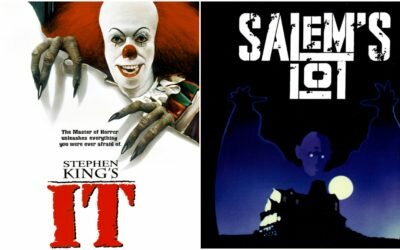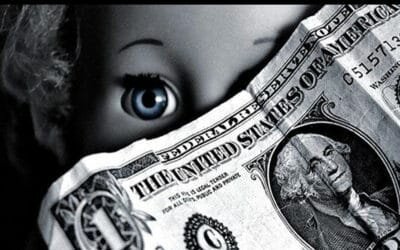So, I was visiting one of the indie author groups that I am a member of on Facebook and someone posted a link to an article from The Huffington Post about self-published authors. The article had a click-baiting title that was an automatic red flag: “Self-Publishing: An Insult to the Written Word.” Right off the bat, I knew this was going to be at least an interesting read. However, when I finished reading the article, I had to wonder if this was really something that was really written three days before 2017 started.
So, I checked out the author of the piece.
Her name is Laurie Gough and she calls herself an “award-winning author of three memoirs” who “is also a journalist and travel writer.” Clicking on her author link, I see this is also the only article she has written for The Huffington Post, or at least the only one they are showing right now.
Let’s get started on what this article said and why I think the author must be trolling the independent writer’s community. I will put her comments in italics and then respond to them in bold text.
I’d rather share a cabin on a Disney cruise with Donald Trump than self-publish.
Oh boy, that came in the second paragraph of this piece for The Huffington Post. The paragraph was the answer to the question of why she wouldn’t want to make more money by self-publishing. I figure right off the bat that she doesn’t care too much about making money.
See, this article was written for The Huffington Post. They don’t pay their writers and just offer them a chance for exposure. On her website, Gough says she teaches writing classes but she seems to have no problem writing for a website that exploits writers for free. To understand how unethical The Huffington Post is, let look at what actor and writer Wil Wheaton gave as a perfect response on his Twitter account.
@wilw This advice applies to designers, photographers, programmers, ANYONE who makes something. You. Deserve. Compensation. For. Your. Work.
— Wil 'this account mocks fascists' Wheaton (@wilw) October 27, 2015
Regardless, Laurie Gough likes to write for free but hates self-publishing. Let’s see why.
You have to go through the gatekeepers of agents, publishers, editors, national and international reviewers. These gatekeepers are assessing whether or not your work is any good.
So, let’s look at this statement. There are different types of writers – that is for sure. Some writers need to feel valued. They need a pat on the back. They need someone to tell them that their words are good. They need someone to tell them that they are special. They need a traditional book publisher to tell them that they are worthy of the honor of publishing a book.
Other writers like to entertain their readers with good books and stories. The people they care about are their readers, not the suits that only buy books that happen to be hot and selling right now and ignore anything that is risky.
Of course, these “gatekeepers” were once ruled by the Big Six, but they then became the Big Five and is likely to drop again because the gatekeepers can’t compete in the new world of publishing. Bookstores are shutting down and the traditional publishing world means less and less every day. But some writers need the pats on the back that they offer.
This system doesn’t always work out perfectly, but it’s the best system we have.
No, it’s not. The best system we have is for writers to choose whether they want to go to the gatekeepers, self-publish, or become a hybrid author. There is a good reason that writers like Kristine Kathryn Rusch are trying their best to get their books back in their rights. There is a reason that Rusch is now doing better selling her old books on her own than the gatekeepers were doing on her back catalog after they moved on to new books.
The craft of writing is a life’s work. It takes at least a decade to become a decent writer, tens of thousands of hours.
Let’s go back to Kristine Kathryn Rusch. She won the Hugo Award for Best Novelette in 2001, which was about 10 years after she started writing fiction, so the timeframe is there. Guess what? She still wants to self-publish now. Hugh Howey started writing in 2009 and began his Wool series in 2011. He self-published and is adamant about remaining independent. His book was so good that Simon & Schuster chose to sign a deal with Howey to sell his physical books while letting him keep his eBook rights.
Are these exceptions to the rule that Laurie Gough suggested? No, they are just examples. There are many more. J.A. Konrath is another example of a former traditionally published author who is making much more money since becoming a self-published author. Joanna Penn is making six figures a year self-publishing.
From what I’ve seen of it, self-publishing is an insult to the written word, the craft of writing, and the tradition of literature.
I am sure there are plenty of bad novels out there by self-published authors. I also know there are abysmal books out there that the gatekeepers let through and published. Sure, it is easier to self-publish a bad novel but to call all self-published books an insult is like saying that all traditionally published books are as bad as Snooki: Confessions of a Guidette.
I’m a horrible singer. But I like singing so let’s say I decide to take some singing lessons. A month later I go to my neighbor’s basement because he has recording equipment. I screech into his microphone and he cuts me a CD. I hire a designer to make a stylish CD cover. Voilà. I have a CD and am now just like all the other musicians with CDs.
Paragraphs like this make me wonder if the article was written six years ago and just now made it through the gatekeepers at The Huffington Post.
First of all, no one makes CDs anymore. Second of all, there are more great albums made independently now than ever before because there is almost no reason to even consider going to a major record label. Sure, independent albums won’t get on the radio, but no one listens to the radio anymore. There are a lot of indie bands with no record deals who are real musicians and it is an insult to pretend they are not just because they have no record deal.
Same thing with self-published authors.
And every single self-published book I’ve tried to read has shown me exactly why the person had to resort to self-publishing. These people haven’t taken the decade, or in many cases even six months, to learn the very basics of writing, such as ‘show, don’t tell,’ or how to create a scene, or that clichés not only kill writing but bludgeon it with a sledgehammer. Sometimes they don’t even know grammar.
Wow. This is elitism at its finest.
Self-published fantasy writer Amanda Hocking sold a four-book series for $2 million in 2011. I doubt they would have bought those books if she was as bad as Gough pretends self-published authors are. Would Hugh Howey have gotten the deal with Simon & Schuster if his books were lacking the basics of writing? Or, is this the example of a cliché writing that she mentions in her article that good writers should avoid?
Meredith Wild self-published her Hacker series and ended up getting a $6.25 million advance for her next five books. Maybe Gough never got an offer like this and is bitter at the self-published authors who did. One-third of the bestselling books at Amazon in 2015 were self-published. Maybe jealousy is part of the equation here. Hell, The Huffington Post even posted a story three months ago about a self-published book that made the New York Times Bestseller List.
Writing is an art deserving our esteem. It shouldn’t be something that you can take up as a hobby one afternoon and a month later, key in your credit card number to CreateSpace or Kindle Direct Publishing before sitting back waiting for a stack of books to arrive at your door.
I agree that art is deserving of respect but just because the author wrote those words in this article does not mean that she actually respects anyone who creates art. At the start of this article, I insulted Laurie Gough for writing for free at The Huffington Post. That was not fair because there is a good reason for some writers to write for free. There is also a good reason for some writers to self-publish.
Insulting everyone who makes a choice you would not make is ignorant and self-indulgent.
I studied writing in college. I have a Bachelor’s degree in professional writing with an emphasis on fiction writing. I got that degree in 2001 and have spent the last 15 years freelance writing and working on honing my craft. I am now self-publishing and to assume that this is a “hobby” that I took up one afternoon is ignorance. I self-publish because I want to keep control of my writing and books and don’t believe that traditional publishers offer anything to me right now.
In the future, if someone like Amazon Publishing wants to approach me, I will definitely listen to them. However, when it comes to the gatekeepers, I don’t need a pat on the head to tell me that I am good enough. My readers will tell me that and their opinions are all that matters.
I don’t know what caused this Huffington Post article to be written. I can only assume that there is a bitterness from the author towards self-published authors. Saying that all self-published novels are crap is a complete lie and fabrication. Looking at the fact that there are almost 300 comments on the article in just over a day tells me two things.
- A nerve was struck
- This was a click bait article that succeeded in trolling people enough for them to respond.
I noticed a lot of authors, including some that I know, respond to her in the comments there. I also noticed a lot of readers coming in and backing up their favorite self-published authors in the comments, telling me that the only people who matter – the readers – are there to stand up for authors they love.
Just because self-publishing isn’t good enough for Laurie Gough does not mean that it is not the perfect choice for very good writers – many who are more successful than Gough. Many self-published authors are more talented than traditionally published authors.
What are your thoughts on self-published authors and their novels? Is damning all self-published authors for the sins of bad ones fair? Do you have favorite self-published authors? Let me know your thoughts in the comment section below.





0 Comments